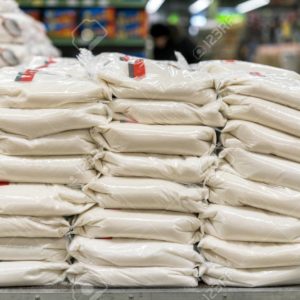The deep political divide between Republicans and Democrats has made agreement in Washington rarer than some comet sightings, so when an issue unites entrenched political combatants in a common cause it deserves serious attention.
The topic at hand is the need to end sweeping foreign subsidies of sugar, which undermine an important industry that supports some 142,000 jobs in 22 states.
At issue is a congressional resolution introduced recently aimed at upping the pressure on other nations to eliminate the foreign subsidies that make sugar the world’s most distorted commodity market. The bipartisan resolution lays on the table an offer to abusing countries around the globe and offers guidelines for the Biden administration – the U.S. will drop its own market protections of domestic sugar producers, but only in exchange for the elimination of all foreign sugar subsidies.
“Time and again, the survival of American sugar producers is threatened by the unfair practices and dumping of cheap sugar subsidized by foreign countries,” said Rep.Kat Cammack, R-Fla., who authored the resolution with Rep. Dan Kildee, D-Mich., and which has the support of numerous members of both parties.
“American sugar farmers are the best in the world, and they want to be able to compete fairly to sell their products. Unfortunately, other countries like Brazil, Thailand, and India have unfair sugar subsidies and regularly dump their surplus sugar on the world market, posing a constant threat to American family farms,” said Kildee.
What has brought these lawmakers together over disparate ideological distance is the deep dysfunction of the world sugar market driven by production- and trade-distorting practices by most sugar-producing countries, including those singled out by two lawmakers as well as the European Union and Russia.
In fact, the global sugar market is hard to even recognize as a market, given the breadth of distortions.
The American Sugar Alliance, which represents sugar cane and beet growers, puts a fine point on how warped the market has become, causing prices to drop well below the costs to produce sugar.
“World sugar prices in 2020 averaged just 13 cents per pound, barely half the world average cost of producing sugar last year, 23 cents per pound. As world sugar prices decline, foreign countries step up their protections for their domestic industries and increase their efforts to dump domestic market surpluses onto the world market below their own domestic prices and/or their costs of production,” it found.
Absent foreign subsidies, the world market price would rise to reflect the actual cost of producing sugar. “American sugar producers could compete – without its existing U.S. sugar policy – on a genuine level playing field, where prices reflect the actual cost of producing sugar,” the group said
The U.S. government’s response over the last several presidential administrations to the sweeping foreign subsidies is interest-bearing loans to U.S. farmers and import quotas to protect U.S. consumers and farmers from a glut of subsidized sugar, thus operating without cost to taxpayers.
To be sure, this is not the ideal response from a free-market perspective, but the extent of foreign subsidies has left little choice. The response is either to employ these no-cost measures – or allow the destruction of the U.S. sugar industry.
Some good news for U.S. sugar growers is that the current administration has indicated it is not likely to break with earlier administrations on sugar policy while voicing strong support for reforming the World Trade Organization, which is supposed to end subsidies though has failed miserably.
But as the bipartisan congressional resolution indicates, there should be no illusions among our trading partners: access to the world’s most important market comes with pre-conditions. It is contingent on a set of rules that everyone follows, on fairness, and, above all, on the elimination of foreign subsidies.

